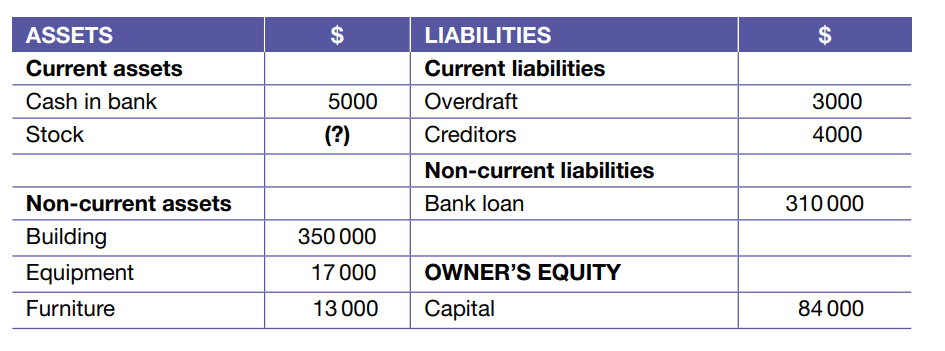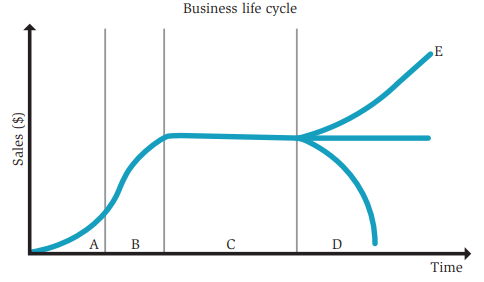Globalisation has had a major impact on businesses. Which external influence in the business environment is this an example of?
A. Economic B. Financial C. Geographic D. Markets
C. Geographic
Which of the following would be classified as a social goal?
A. To increase market share by 10 per cent B. To sponsor the local school football team C. To provide shareholders with increased returns D. To improve the training opportunities for employees
B. To sponsor the local school football team
Describe THREE personal qualities essential to all entrepreneurs.
Risk taker, innovate, organised, creative, ambitious
What key business function connects the customer with the products that a business produces?
A finance B operations C marketing D human resources
C marketing
Which of the following is a characteristic of a service?
A it is physical B it is tangible C it is intangible D it does not have inputs
C it is intangible
Which piece of legislation is designed to protect the interests of both consumers and business?
A. Small Business Act B. Consumer Affairs Act C. Competition and Consumer Act D. Broadcasting and Television Act
C. Competition and Consumer Act
What are the 4 P's of the marketing mix?
Price, Product, Promotion, Place
The owners of a café have implemented policies to ensure they comply with local government regulations. Which influence in establishing an SME are they addressing?
A. Legal B. Market C. Taxation D. Sources of information
A. Legal
Which one of the following is an internal influence in the business environment?
A economic B competitive C technological D business culture
D business culture
Describe TWO reasons for SMEs failing
Financial, product issue/faults, mismanagement, economic conditions, changing social trends
Which of the following is an internal influence in the business environment?
A. Financial B. Institutional C. Location D. Social
C. Location
A new furniture store has decided to stock their products through a few selective retailers. Which marketing strategy is this an example of?
A. Place B. Price C. Product D. Promotion
A. Place
Which statement is TRUE in relation to equity finance?
A. Interest is charged. B. It doesn’t have to be repaid. C. It can be acquired at short notice. D. You don’t lose any ownership control.
B. It doesn’t have to be repaid
What kind of influence is the incidence of children remaining at home longer, well into their 20s?
A social B location C financial D demographic
A social
Which statement is correct about unemployment during an economic downswing?
A unemployment starts to fall B unemployment is at its lowest C unemployment starts to rise D unemployment is at its highest
C unemployment starts to rise
Identify ONE advantages and ONE disadvantages of being a sole trader
ADVANTAGE - control, easy to set up, freedom, cheap
DISADVANTAGE - liability, hard to manage, all work on the employer
Define the term ‘stakeholders’
Define the term ‘target market’.
A particular group of consumers at which a product or service is aimed, usually sharing similar characteristics
Distinguish between a wage and a salary
Wage: Hourly rate
Salary: Yearly rate
What does GST stand for?
Goods and Service Tax
Identify four external influences that can affect a business
Financial, Economic, Government, Political, Environmental, Social, Technological
 What would be the value of the stock?
What would be the value of the stock?
$16,000
Give ONE example of equity finance and ONE example of debt finance
Equity: Shareholders or investors
Debt: loan, overdraft, credit card
The sales of a business have reached a peak some time ago and have remained stable for two years. Towards which stage of the business life cycle could this business be heading?
A growth B maturity C decline D establishment
B maturity
Identify each of the four stages of the business life cycle. 
A. Establishment
B. Growth
C Maturity
D Decline
E Renewal